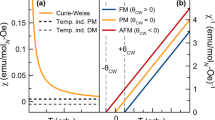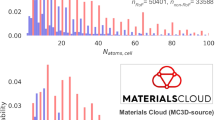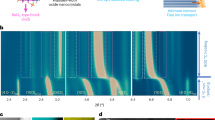Abstract
IN the course of investigations on corrosion in electrical generating plant, metallographic examination of polished sections of various corrosion products revealed a layer structure and the morphology of the different layers suggested that each consisted of one or more distinct phases. It was desired to use X-ray or electron-diffraction techniques to identify the constituents of the different layers, some of which were only a few microns thick.
This is a preview of subscription content, access via your institution
Access options
Subscribe to this journal
Receive 51 print issues and online access
$199.00 per year
only $3.90 per issue
Buy this article
- Purchase on Springer Link
- Instant access to full article PDF
Prices may be subject to local taxes which are calculated during checkout
Similar content being viewed by others
References
Simon, A. C., and Gildner, D. A., Rev. Sci. Instr., 29, 1125 (1958).
Runge, E. F., and Bryan, F. R., App. Spectr., 13, 74 (1959).
Bradley, D. E., Brit. J. App. Phys., 5, 65 (1954).
Author information
Authors and Affiliations
Rights and permissions
About this article
Cite this article
ADAMS, A., SILVA, M. & SPIERS, V. A Technique for Sampling Oxide Layers and Brittle Materials for Microdiffraction. Nature 186, 147–148 (1960). https://doi.org/10.1038/186147a0
Issue Date:
DOI: https://doi.org/10.1038/186147a0
This article is cited by
-
Ferrimagnetic garnet thin films: Growth, structure and some magnetic properties
Journal of Materials Science (1969)
Comments
By submitting a comment you agree to abide by our Terms and Community Guidelines. If you find something abusive or that does not comply with our terms or guidelines please flag it as inappropriate.



